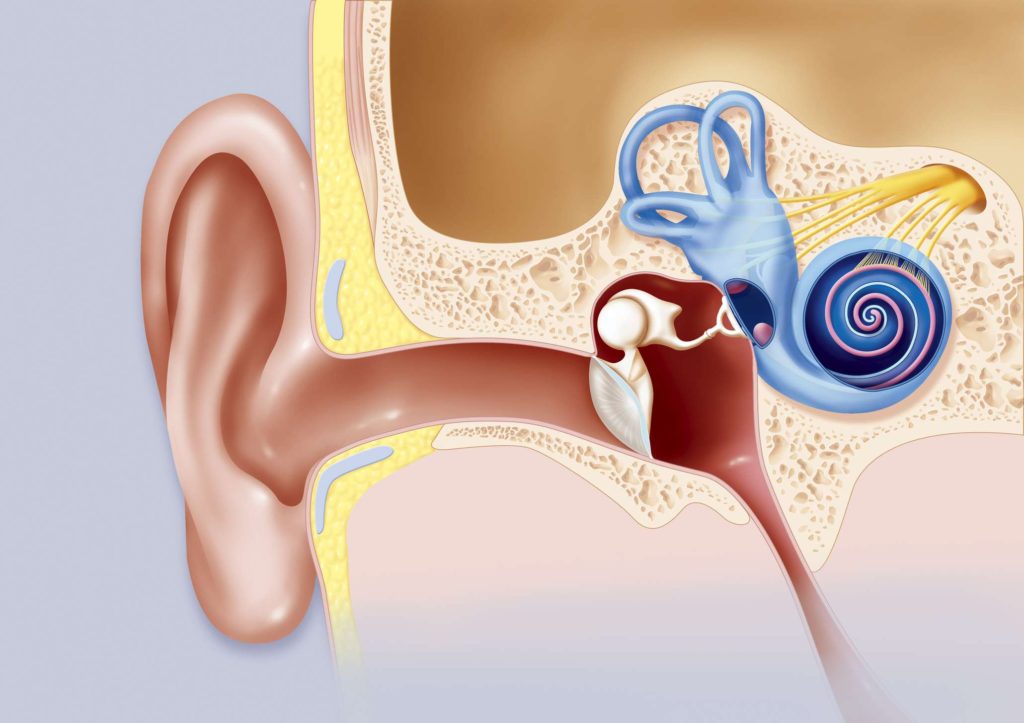The problem of ear ringing that is medically known as tinnitus is an issue that creates a non-stop buzzing or ringing noise in your hair. The most common question that people ask: Is tinnitus dangerous? If not healed, then tinnitus may cause frustration, anger issues, anxiety, stress and even depression. Tinnitus may not always result in ear ringing. You may also notice buzzing, hissing, whistling, roaring and screeching noise that gets on your nerves and might be annoying.
The sounds that you hear are not from any external devices but literally inside your ear. Tinnitus is a common problem in India. According to sources, almost 17% of people over the age of 40 suffer from tinnitus in India.
Type of Tinnitus
There are two types of tinnitus- Subjective and Objective. Subjective tinnitus is when only you can hear the sound ringing in your ear. However, objective tinnitus is a rare problem compared to subjective tinnitus. In this, people around you can also hear the ringing and buzzing sound. It’s because you have abnormal blood vessels inside and near your ear.
Causes of Tinnitus
- The main reason why people suffer from tinnitus is because of damage done to their inner ear or middle ear.
- Medically speaking, your middle ear catches sound waves and creates vibrations to the inner ear that is transmitted via electrical impulses to the brain. In the entire process, the brain accepts the electrical impulses and translates them into the sounds that a person can hear. At times, your brain gets damaged for various reasons and creates a rift between the sound that’s transmitted.
- Any kind of damage done to your eardrum or your middle ear can also result in the ringing noise that you experience. If there are any tumours near the inner ear, then that too may cause your ears to ring.
- You might damage your inner ear if exposed to extremely loud noise for long durations. It can be if you work at construction sites and often use heavy machinery/tools like chainsaw, jackhammer and drillers.
- People who often listen to loud music over the earphones or heavy bass music in concerts can end up damaging their ear.
- Substance abuse and improper medication is another reason for tinnitus and hearing damage.
- Other conditions include age-related hearing problems, spasms in your ear.
How to diagnose tinnitus
Visit an ENT Doctor, and they will examine your ear and conduct a hearing test. Usually, they transmit the sound via headphones and check one of your ears. In this test, you have to respond when/if you hear a sound with a gesture or raising your hand. Your
Your doctor will work on treating any condition that is causing tinnitus. The most common way is by removing excess earwax from your ear. There many other ways to treat tinnitus:
- Prescribed medication: Doctors will help you with drug therapy that will cure the ringing/buzzing sound that you hear. Consult a specialist via Online Doctor Consultation who will help you in taking the right medication. Do not consume any medication or drugs without a prescription.
- At-home safety measure: It won’t completely solve your tinnitus but will definitely improve your hearing ability. You can try a masking device and basic meditation with soothing and relaxing sounds to improve your hearing strength.
- Hearing aids: Hearing aids are recommended for people who have difficulty listening to normal conversation or voices due to excessive hearing dysfunction. It is beneficial for individuals who are diagnosed with tinnitus
- Cochlear implants: If you have lost your hearing ability then Cochlear implants might do the trick. This implant allows the transmission of sounds from the ear to your brain despite the damage. It helps your brain decode the sounds effectively.
How to prevent tinnitus
Noise pollution is a leading cause of tinnitus. Our world is rapidly increasing in terms of growth, technology, economy, medicine and so much more. However, the negatives are increasing too. To prevent tinnitus:
- Protect your ears from construction noise, fireworks and similar prolonging disturbances
- Distance yourself from loud sounds
- Limit usage of loud headphone, earbuds, earphones
- Control your stress and ensure your mental health is balanced
- Maintain proper head posture
- Quit smoking
- Protect your heart
Conclusion
Chronic tinnitus may also result in damaged mental health like cases of depression, anxiety, stress, paranoia or sleep disorders. Avoid being in places where the sound range is above 70 and do consult an ENT specialist for a better understanding of tinnitus and similar ear problems.









Be the first to write a comment.